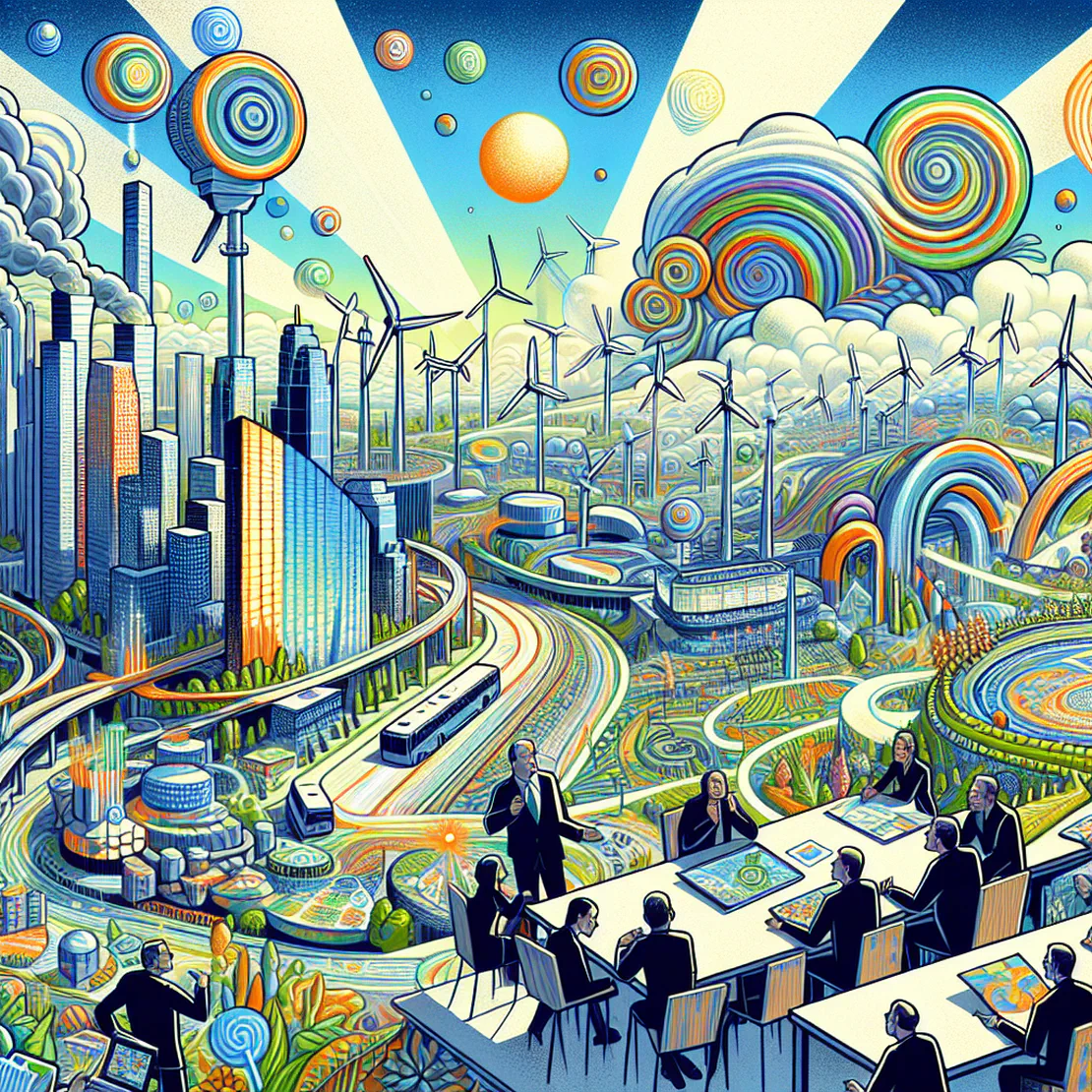
Can cap and trade work in the US?
- Planet Money
- Trade , Gdp , America
- October 9, 2024
Table of Contents
At a Glance
-
Economic Perspective on Climate Change - “1000% an economic problem.” This underscores how economists frame climate change as a market failure that can be addressed through economic tools like carbon taxes and cap and trade systems.
-
Carbon Tax and Cap and Trade - “Yeah, the price of emitting carbon is too low.” This point explains the rationale behind carbon taxes and cap and trade as methods to internalize the external costs of carbon emissions, a classic economic solution to pollution.
-
Cap and Trade Explained - “Basically, the government gets to say, we’re only going to allow a certain amount of carbon emissions.” The simplicity of this explanation helps listeners understand a complex regulatory approach to managing greenhouse gases.
-
Luke Martland’s Career Shift - “But a little over a decade ago, Luke took a job as the chief counsel to the Vermont legislature.” This transition highlights the personal and professional journey of a key figure in the episode, emphasizing the human element in policy development.
-
Real-World Impact of Legislation - “But most of the bills you write, maybe they get passed, maybe they don’t get passed, but they’re not having a huge impact.” Reflects the frustration and challenges faced by policymakers in enacting meaningful climate change legislation.
-
Washington’s Ambitious Cap and Trade - “Washington had already passed a law that established that economist’s holy grail, a cap and trade system.” This marks a significant moment in the episode, illustrating a state’s aggressive approach toward mitigating climate change.
-
Urgency and Challenge - “Did that give you any pause, the 18 months timeline?” This quote from Luke Martland conveys the urgency and the daunting task ahead in implementing the cap and trade system within a tight deadline.
-
Public Awareness and Engagement - “They didn’t know about it. They didn’t know what it was. They weren’t prepared for it.” Highlights the initial gaps in awareness about the cap and trade program among businesses, suggesting challenges in communication and education.
-
Economic Incentives - “You want to incentivize companies and businesses to reduce their carbon emissions.” This point is crucial in understanding the economic thinking behind cap and trade—using market mechanisms to encourage pollution reduction.
-
Personal and Professional Stakes - “We sold our house, we packed up all our things, and my husband, at that point, six-month-year-old daughter and our bulldog piled into our 15-year-old Prius and drove cross-country.” Adds a personal touch to the story, showing the significant life changes people make for opportunities they believe in, enhancing the narrative’s emotional impact.
What to Do
-
‘Fix the market to address climate change’ - Economists see climate change as a classic market failure, and fixing the market involves mechanisms like carbon taxes or cap and trade systems which can make polluters pay for the damage, encouraging them to make more environmentally friendly choices.
-
‘Engage in robust education and outreach for new programs’ - When implementing new systems like cap and trade, it’s crucial to ensure that all stakeholders are aware and understand the program, as ignorance can hinder effective implementation.
-
‘Use the market to drive environmental improvements’ - Cap and trade systems utilize market mechanisms to set a price on carbon emissions, incentivizing companies to reduce their carbon footprint in the most economically efficient way.
-
‘Take bold steps for significant issues like climate change’ - Tackling major challenges often requires ambitious, innovative approaches that may seem daunting but are necessary for substantial change.
-
‘Monitor and adapt to real-world feedback in policy implementation’ - As policies move from theory to practice, continuous monitoring and readiness to adapt based on real-world experiences and feedback are crucial for success.
-
‘Work diligently and learn from mistakes’ - Effective implementation of complex programs requires hard work and a willingness to learn and adjust from early errors or oversights in the process.
What to Get
-
Economics textbooks - Used by economists to propose solutions to climate change, specifically carbon taxes and cap and trade systems.
-
Cap and trade system - Second favorite solution among economists to address climate change without explicitly using the word “tax”; involves setting a cap on emissions and allowing companies to trade permits.
-
Cap and Trade for Dummies book - Hypothetical or rhetorical reference made to understand and implement cap and trade systems effectively.
Summary
In this episode of Planet Money, the hosts Kenny Malone and Keith Romer delve into the intricacies of cap and trade systems as a solution to climate change, focusing primarily on Washington state’s ambitious implementation of this policy. The episode begins by framing climate change as an economic problem that arises from a classic market failure where the costs of pollution are not borne by the polluters. Economists suggest that this can be corrected through mechanisms like carbon taxes or cap and trade systems, which theoretically fix the market failure by putting a price on carbon emissions.
The narrative then shifts to a detailed exploration of Washington state’s implementation of a cap and trade system, which aims to significantly reduce carbon emissions by 2030. The state’s plan is described as a “grand experiment” and is considered particularly aggressive compared to other American states. The hosts discuss the potential of this system to serve as a model for other states if successful, or a cautionary tale if it fails.
Central to the episode is the story of Luke Martland, a lawyer who moved from New York to Washington to lead the setup of the state’s cap and trade program. The urgency and challenges of this task are highlighted by the tight timeframe of just 18 months given to get the program running. This narrative provides a personal and practical perspective on the complexities involved in turning an economic theory into real-world policy.
The episode also touches on the outreach and educational efforts needed to ensure that businesses and entities understand and are prepared for the new system, emphasizing the real-world hurdles in implementing such policies. Additionally, the episode discusses the auctions for carbon allowances, a critical component of the cap and trade system where businesses buy permits to emit carbon, thus internalizing the cost of pollution.
Overall, the episode paints a comprehensive picture of the economic theories behind cap and trade, the practical challenges of implementing such a system, and the potential impacts on broader climate policy. The story of Washington’s bold approach and Luke Martland’s role in it serves as a compelling case study on the intersection of economics, policy, and the urgent global fight against climate change.


